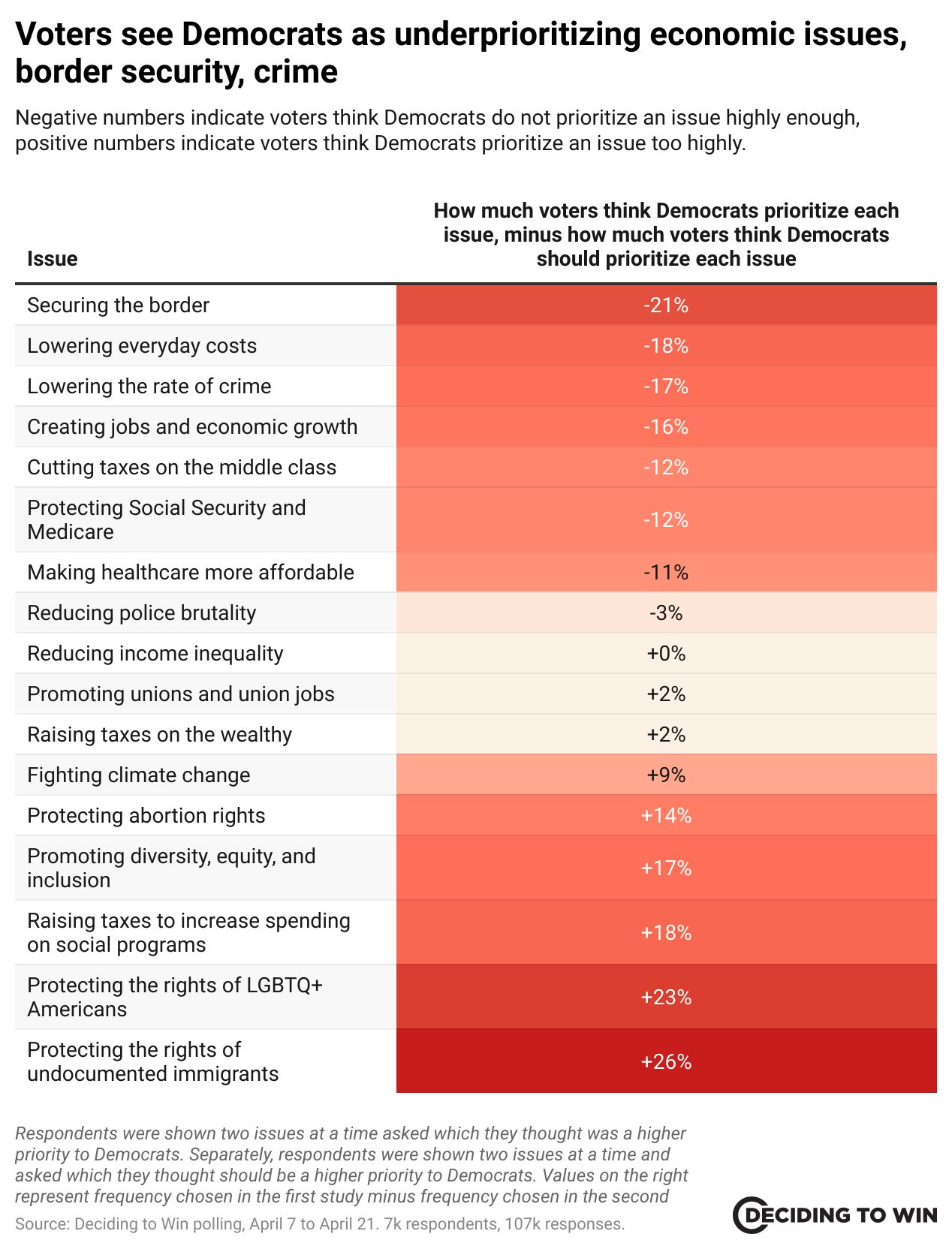Freedom Needs a Strategy
Rebuild our relationship with the other side, reshape the Democrats, and object non-violently - BCB #170
No matter who you voted for, I think you will agree that things are going badly for America. After a lot of reading and many conversations, this post lays out my best guess to get out of this mess. I’m featuring three recent articles that, together, show the way forward.
But first, let’s talk politics for a minute.
We are losing important things
We welcome all comers at BCB, whatever your ideology. This means that many of you are sure that the Trump administration is the problem, and it also means that many of you are sure that things would be OK if only the Democrats weren’t so idiotic. Personally, I think this is the hour where the Libertarians are an important third side.
Wherever you stand, in very concrete ways the government is failing and Americans are losing freedoms we have taken for granted for centuries.
As always when an issue is sufficiently polarized, getting into the details is either redundant (for those who agree) or unconvincing (for those who don’t). So instead I’ll let Isaac Saul at Tangle make the case:
So here’s the truth as I see it: If, on the day Trump was inaugurated, I had warned readers that in a few months law enforcement officers would be rappelling from helicopters like soldiers into civilian apartment buildings in Chicago; the military would be extrajudicially killing Venezuelans for alleged drug dealing; Americans would be getting arrested while being falsely accused of being here illegally; the Justice Department would be prosecuting the president’s political foes at his direction; and legal U.S. residents would be getting arrested, detained, and deported for protected speech; I would have been accused of having a bad case of Trump Derangement Syndrome.
Yet nine months into this presidency, all of those things are happening. This isn’t hyperbolic fear-mongering — it isn’t sensationalist, or exaggerated. It’s literally just a list of the things the president has done, things I’m obligated to speak plainly about.
…
At the risk of doing too much hedging and throat-clearing, I want to make myself perfectly clear: None of this is to suggest there aren’t problems on the left, or that Democrats haven’t grossly abused executive power or acted in unconstitutional ways. Of course they have.
On top of this, the Trump administration has not delivered. Inflation is up. The government is shut down and 42 million people are about to go hungry.
If we can agree that we need to protect our basic rights and have a functional government, then I don’t care what your politics are — we can work together. But we need a plan. Here are three recent articles that capture the core of a coherent strategy.
The relationship is the problem
Guy and Heidi Burgess recently wrote a masterful argument for conflict transformation. In The Great Reframing, they make the case that we need to shift our thinking from “they are the problem” to “our relationship is the problem.”
The change we suggest is this: Instead of assuming that our big social and political conflicts are between us (”the good guys”) and them (the “the bad guys”), the Great Reframing defines the primary problem as the destructive ways we engage with each other about all those other things. It is the act of assuming “the other is to blame.” It is the act of humiliating the other, trying to delegitimize, disempower, and disenfranchise “the other.” Those actions, which often cause parallel toxic reactions on the other side, constitute the really big problem that is driving us further and further apart, and is preventing us from making any progress on the issues we care most about (things like the economy, immigration, climate, etc.)
None of the problems we face are as simple as us-vs-them, good-vs-bad. By assuming they are, we are not only making our problems worse, we are crippling our ability to address those problems successfully.
This is foundational to just about any strategy. This sort of relationship building is how coalitions get built. It’s how we correct the misperceptions that cause us to take bad actions. Neglect or outright vilification of this relationship is how things got so bad in the first place.
The Democrats need moderating reforms
This is another one of those claims that is going to be met with a combination of “duh” and “absolutely not.” Everybody agrees the Democratic party is broken, but there is passionate disagreement on how to fix it, perhaps most passionately among Democratic voters. To brutally oversimplify, the sides could be called “fight harder” and “choose more popular policies.”
Last week, the New York Times did an analysis showing that more moderate politicians — on either side — win elections more often. This week, a massive, data-driven report dropped, making the same case in exhaustive detail. The authors called it Deciding to Win:
We draw on thousands of election results, hundreds of public polls and academic papers, dozens of case studies, and surveys of more than 500,000 voters we conducted since the 2024 election. Deciding to Win argues that since 2012, highly educated staffers, donors, advocacy groups, pundits, and elected officials have reshaped the Democratic Party’s agenda, decreasing our party’s focus on the economic issues that are the top concerns of the American people. These same forces have pushed our party to adopt unpopular positions on a number of issues that are important to voters, including immigration and public safety. To win again, Democrats need to listen more to voters and less to out-of-touch donors, detached party elites, and Democratic politicians who consistently underperform the top of the ticket.
There are lots and lots of charts in this report. Here’s a good one:
Non-violence is how an opposition movement wins
Here at BCB we’ve repeatedly discussed non-violent conflict. Even if you don’t agree with the goals of the protesters, it’s morally defensible. Also, it tends to work if enough people are involved. So I was fascinated to see the readout from the latest Nonviolent Action Lab Summit. They identified five strategic principles. I think the first one is most relevant:
1. Fragmentation and Coalition Building of Pro-Democracy actors
A fundamental challenge for counter-authoritarian movements is that democratic forces are often highly fragmented. Democracy’s allies can be divided across borders, by socioeconomic or political cleavages, between civil society and formal political actors, and over competing visions for the future. If these divisions are acrimonious, they can impede effective coordination around resistance to authoritarianism, making it far easier for autocrats to expand and consolidate control. Autocrats have long employed divide-and-rule strategies, and for good reason—fragmentation and division are the bane of collective action.
The most urgent priority for democratic revival, then, is pro-democracy coalition building. To build power, pro-democracy actors must foster strategic alliances across civil society, political actors, the private sector, religious institutions, and more. In some cases, pro-democracy actors may resist collaboration with potential allies with whom they disagree on other issues or have clashed in the past. But coalition building does not require unanimity; it requires an articulation of shared goals and a willingness to adapt to the circumstances at hand. Helping democracy movements to cultivate coalitions and coalition-building skills will be crucial in the years ahead.
The other four priority areas are:
Tactical Stagnation. “While mass protest remains a vital tool, many democracy movements have been trapped in cycles of mobilization without ever achieving durable change.”
Authoritarian Legitimacy. “Wannabe autocrats have learned to use outsider populist appeals to discredit existing democratic institutions as corrupt and impotent, cloaking their attacks on democracy under veils of democratic reform.”
Global Autocratic Alliances vs. Weak Movement Support Ecosystems.
Disinformation and Narrative. “Activists must continually innovate in today’s digital information wars, developing intentional strategies to garner and retain media attention.”
A theory of the case
I believe that all evidence suggests we are witnessing the destruction of functioning government and basic rights. The most fundamental strategy is to expand the pro-freedom coalition by uniting “us” with “them” and taking non-violent action together.
And even if you disagree — if you think Trump and Republicans are making necessary changes — I hope that it’s hard to disagree with the idea of having a better relationship with the other side, reforming the broken Democratic party, and committing to non-violence.
But nobody will be satisfied with everything above. So let’s talk. Tell me what this gets wrong in the comments.
Quote of the Week
Every time you humanize an opponent, you make violence less likely.




*sigh* Lovely choices: "fight harder" or "choose more popular policies".
Those only really make sense when the context is sports, or perhaps dictatorship. WE want to win, so we should pick whatever policies will facilitate that. How else will Joe or Jane Random Politico manage to win elections? And what could possibly be more important than their careers, except perhaps the fortunes of their donors?
What ever became of standing for the good of the country, the good of its people, and for what is right, rather than what benefits a small subset we happen to favor, perhaps because we're part of that subset ourselves?
Obviously there are disagreements about what those things might be.
But if there isn't some kind of common core, we might as well admit it and either split the country, or start an official civil war.
This may be a defining moment for US politics, where some probably new party will grasp that common core, win against both the over-polarized leftovers, and become the dominant party for decades thereafter.
OTOH, we may just stick with more of the same, as the country goes to hell in a hand basket of its own making.
Or we can start a completely asinine civil war, fast tracking that journey to hell.
100% agree that we are better together! The best case I have seen made around this recently is in a New Republic article by former FTC commissioner Alvaro Bedoya. I found it eye opening and hugely important to understand for framing a message that might actually have legs uniting people across the political spectrum for an overwhelming victory. It makes me think it is time for a new New Deal.
https://newrepublic.com/article/201171/alvaro-bedoya-ftc-became-populist?ref=made-not-found-by-danah-boyd.ghost.io
Here's an excerpt:
If you focus on the conflict between left and right, if the most important thing is what you are—your party, your state, your race, your ethnicity—the people I met could not be more different. On the one hand, you have rural, white small-business owners, generations into building a life in this country. On the other, you have urban Latino, Haitian, African, and South Asian immigrants, every one of them a worker. The line between them is sharp, almost tribal. What could they possibly have in common?
Everything—if you look at what they need. The people I met as a commissioner may look different, but what they need is surprisingly the same: They need a government that gives them a level playing field against the powerful and wealthy. They need the courts to check corporations when they abuse that power and wealth. They need basic dignity and control in their material lives.
Looking at things that way, everyone I met was part of one huge group: people working themselves to the bone who were getting screwed by billionaires and corporations—regardless of party or state or race or ethnicity. Regardless, even, of whether they are workers or the owners of farms or small businesses.
Populism is not an indictment, but an opportunity. Focusing on the conflict between the haves and the have-nots is not divisive; it’s a way to build coalitions with astonishing potential.